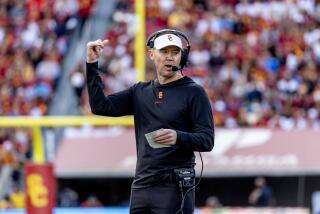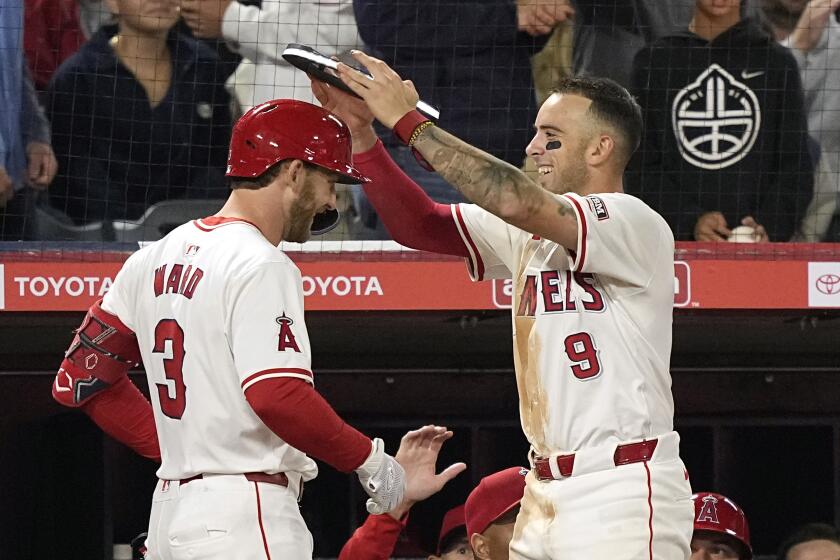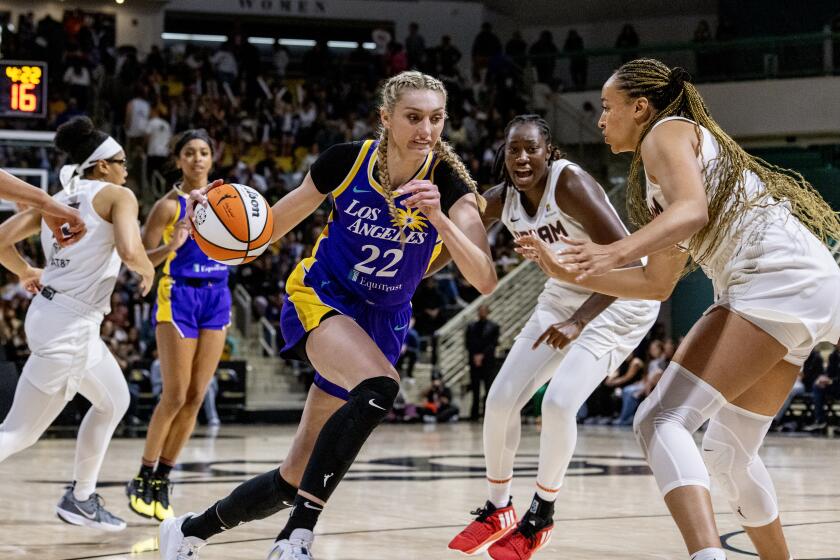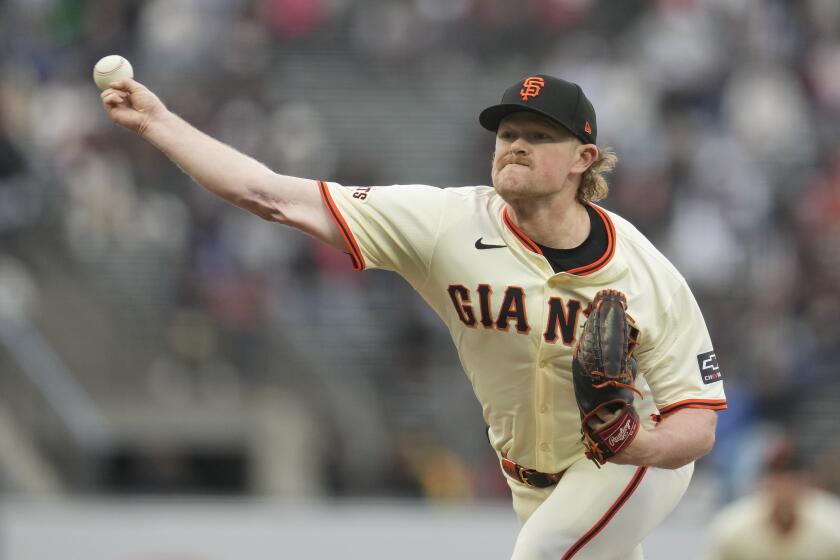NBA Is Prospering, but All Is Not Well : Players’ Union Unhappy With Salary Cap, Other Restrictions
These are prosperous days for the National Basketball Assn. Attendance is at a record high and TV ratings are taking off along with Michael Jordan.
Teams are making money. Twenty of 23 franchises are expected to show profits this season, whereas four years ago, 13 teams were considered to be in financial trouble. And the price of an expansion franchise, for which seven cities have applied, is expected to be substantially more than $25 million, according to NBA Commissioner David Stern.
The players are making more money, too. The average salary is now around $450,000, an increase of nearly 57% from four years ago, and the minimum is $75,000, nearly double the $40,000 it was in 1983-84.
The NBA seemingly hit the jackpot in the spring of 1983, when the players and owners came to terms on a collective bargaining agreement that was hailed as revolutionary and even statesmanlike.
It was revolutionary, because it incorporated such innovations as:
--A salary cap, which established 53% of the owners’ total take from gate receipts, TV, cable, radio and playoffs as a ceiling on the combined payroll of all NBA teams. In return, players were guaranteed that they would receive 53% of the league revenues.
--The right of first refusal, which gave a team 15 days to match an offer sheet tendered to one of its free agents.
It was statesmanlike because the acrimony that customarily accompanies such negotiations was absent and the players’ union was willing to make concessions for the welfare of the league.
The system, Stern said last fall at the league meetings in Orlando, Fla., saved the league from ruin.
“The mood of the owners is that things are going marvelously,” Stern said at press conference here Saturday after a meeting of the NBA’s Board of Governors.
So, obviously, since everyone has profited, no one has any intentions of tampering with that system when the collective bargaining agreement expires at the end of this season.
Wrong.
In negotiations scheduled to begin Wednesday in New York, Larry Fleisher, the head of the NBA Players Assn., plans not to seek modifications in the system, but to have it tossed out altogether.
“We’re looking to eliminate all artificial restraints on the movement of players,” Fleisher said.
” . . . And if the league (a) refuses to change the system, or (b) tries to re-impose what existed before, then it becomes a legal issue.”
What Fleisher is saying is: No salary cap. No right of first refusal. No draft.
The salary cap, Fleisher said, is limiting the players’ slice of the economic pie. He cites last fall’s public stock-offering of the Boston Celtics as “the most dramatic change that has happened in sports in recent years.”
The Celtics’ market value was put at a stunning $120 million--22 times the team’s earnings in its 1985-86 championship season--and the sale generated more than $48 million for the team’s owners, including a $29-million profit over their initial investment.
“The sale proved there is no longer any question about how big a business (sports) is, what the opportunities are out there,” Fleisher said.
“If the Boston Celtics, who average 14,000 in attendance in the 8th- or 10th-largest market, are worth $120 million, then the Dallas Cowboys could be worth $400 million or the Los Angeles Dodgers or New York Mets $500 million.
“With that in mind, owners of sports teams can no longer justify to the public their right to special treatment (such as antitrust exemptions). “We have no objection to, say, (Laker owner) Jerry Buss selling his team to the public for $200 million. But then Magic (Johnson) and Kareem (Abdul-Jabbar) should be able to make $5 million a year. There shouldn’t be any restraints.”
It is equally clear, Fleisher said, that neither the salary cap nor the draft do anything to alter the league’s competitive balance. And all the right of first refusal does is limit the movement of free agents, he added.
“The league was in trouble, and we agreed to help them out of that trouble (in 1983),” Fleisher said. “They’re not in trouble anymore.”
Stern has referred to Fleisher’s proposals as a “good wish list,” affirming that the league’s intention is to maintain the status quo.
The draft is part of the league’s economic foundation, he said. The salary cap served as a necessary curb on escalating salaries. And if there doesn’t appear to be much movement of free agents, it’s only because teams are spending more money to keep their free agents from going elsewhere.
Fleisher doesn’t expect public opinion to line up on his side.
“There’s a problem in creating a feeling of sympathy when the average salary is $450,000,” he said. “The attitude probably will be, ‘What the hell are they complaining about?’ But the players understand what is involved.”
More to Read
Get our high school sports newsletter
Prep Rally is devoted to the SoCal high school sports experience, bringing you scores, stories and a behind-the-scenes look at what makes prep sports so popular.
You may occasionally receive promotional content from the Los Angeles Times.






